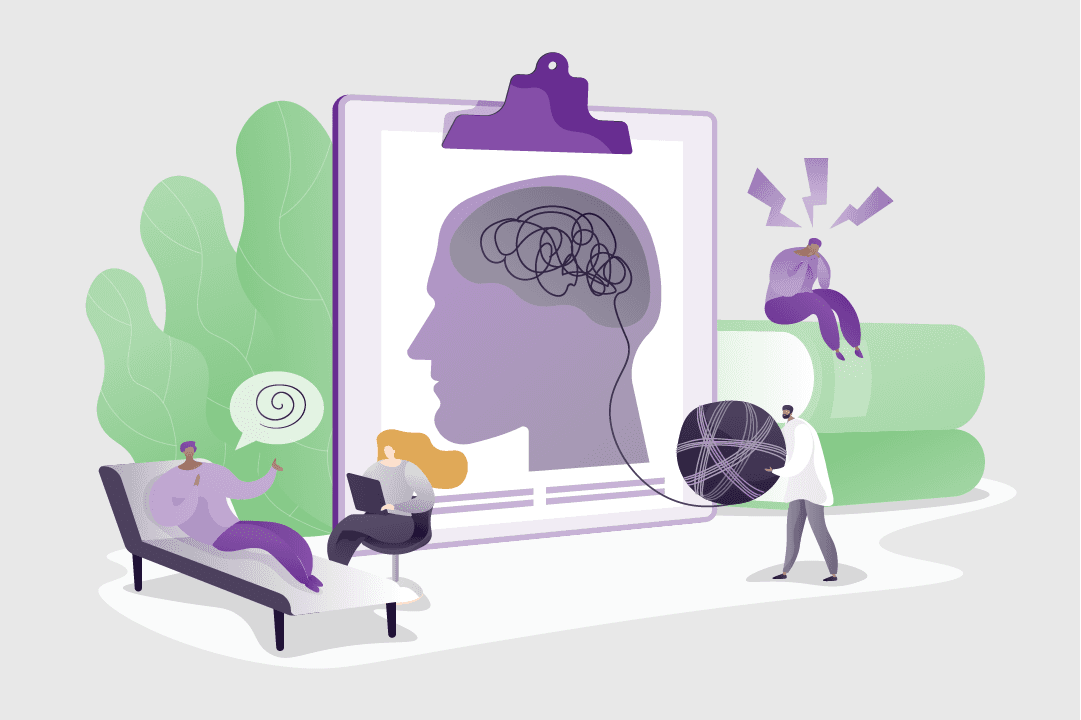What Are Counselling Microskills?

Microskills are fundamental communication techniques used to build rapport, actively listen, and guide effective client interactions. These skills are used by mental health professionals, social workers, and counsellors to assist clients in navigating personal challenges and improving their mental health.
What are counselling microskills?
Counselling microskills are the foundational techniques used by counsellors to communicate effectively, build rapport, and support clients throughout the therapeutic process. Together, these techniques enhance a counsellor’s ability to understand the client’s perspective, guide the session constructively, and encourage client self-reflection and growth.
Developing strong microskills is essential for anyone pursuing a career in counselling, as they form the core of every client interaction. If you’re at the beginning of your journey in counselling or seeking to refine your skill set, understanding and applying counselling microskills is essential.
Why are microskills important in counselling?
Mastering microskills helps counsellors:
- Establish trust and rapport with clients.
- Accurately interpret verbal and non-verbal communication.
- Client observation is crucial in interpreting non-verbal communication, as it allows counsellors to understand clients’ perceptions through their body language, tone of voice, and facial expressions.
- Encourage self-expression and self-reflection.
- Guide conversations toward positive change and client goals.
These skills play a key role in managing emotional reactions, interpreting nonverbal messages, and facilitating client change in a clinical setting or private practice.
Five essential microskills in counselling
Below are five of the most commonly used counselling techniques, each designed to support effective communication and foster emotional connection.
1. Open-ended questions
Description: These are questions that invite longer, more thoughtful responses rather than simple yes/no answers.
Purpose: They help the counsellor gain insight into the client’s words, emotions, and thought patterns, allowing the conversation to move forward naturally.
Why it matters: Open questions encourage clients to share their deepest thoughts, internal dialogues, and future dreams, all of which are essential to setting and achieving therapeutic goals.
2. Reflection of feelings
Description: This involves identifying and restating the client’s emotions to show understanding.
Purpose: To validate emotions, demonstrate accurate responding, and promote further emotional exploration.
Why it matters: Reflection helps clients become more self-aware of their emotional reactions and builds a foundation for conflict resolution and positive change.
3. Paraphrasing
Description: Restate the client’s words in your own words to show understanding and clarify meaning.
Purpose: To ensure that you’re actively listening and that the message received is the message intended.
Why it matters: Paraphrasing reduces mixed messages, confirms understanding, and ensures alignment in the therapeutic process. Additionally, it plays a crucial role in building therapeutic relationships by fostering effective communication and rapport.
4. Summarising
Description: Offering a concise overview of key points the client has shared during a session.
Purpose: To consolidate insights, highlight patterns, and guide the conversation forward.
Why it matters: Summarising can help the client focus on their main concerns and support the development of potential solutions.
5. Non-verbal communication and body language
Description: Includes body language, tone of voice, facial expressions, and attentive body language, like maintaining eye contact or using gestures that show genuine interest.
Purpose: To express unconditional positive regard and establish a supportive atmosphere that encourages openness.
Why it matters: Effective use of non-verbal communication builds trust and shows clients they are valued, respected, and safe to share openly.

5 counselling skills you might already have
Whether you’re drawn to helping individuals through life challenges or want to support families, communities, or specific populations, there’s a counselling path to suit your passion.
Other important microskills in counselling
Active listening
Active listening is a fundamental microskill in counselling that involves fully concentrating on and comprehending the client’s verbal and nonverbal messages. It is a crucial aspect of building a strong therapeutic relationship and facilitating effective communication between the counsellor and client.
Active listening involves maintaining eye contact, using open and relaxed body language, and avoiding distractions. Effective active listening requires the counsellor to be fully present and engaged with the client, focusing on both the content and emotional tone of the client’s message.
Active listening is not just about hearing the client’s words but also about understanding the underlying emotions, needs, and concerns. It involves picking up on subtle cues, such as tone of voice, facial expressions, and body language, to gain a deeper understanding of the client’s experience.
By actively listening to the client, the counsellor can build trust, establish rapport, and create a safe and supportive therapeutic environment.
Building rapport and trust
Building rapport and trust is a critical aspect of the counselling process. It involves establishing a positive and supportive therapeutic relationship between the counsellor and client. Rapport and trust are built through active listening, empathy, and genuineness. The counsellor must be able to create a safe and non-judgmental space for the client to express themselves freely.
Effective counsellors use various techniques to build rapport and trust, including mirroring, matching, and pacing.
- Mirroring involves reflecting the client’s body language and tone of voice to create a sense of connection and understanding.
- Matching involves using similar language and communication styles to build rapport and establish a sense of commonality.
- Pacing involves slowing down or speeding up the conversation to match the client’s energy and emotional state.
By building rapport and trust, the counsellor can create a strong therapeutic alliance with the client, which is essential for effective counselling. A strong therapeutic alliance is built on mutual respect, empathy, and understanding and is critical for facilitating positive change and growth in the client.

The ultimate guide to counselling in Australia
Whether you’re just starting out or considering a meaningful career change, counselling offers a rewarding path where you can truly make a difference.
Scope of practice in the therapeutic relationship
In counselling, the scope of practice refers to the boundaries within which a counsellor is trained and authorised to work. Understanding this is vital to ethical and effective counselling. Counsellors typically focus on supporting clients with life challenges, emotional difficulties, and interpersonal issues through techniques like those mentioned above.
Unlike psychologists, counsellors do not diagnose mental illness or prescribe medication but instead provide mental health support through basic skills, relationship-building, and communication strategies. Staying within one’s scope ensures that clients receive appropriate care and are referred to other mental health professionals when necessary.
How to build your basic counselling skills
Honing your microskills of counselling can dramatically enhance your ability to support clients and grow professionally. If you’re looking to build your communication skills, refine your ability to assist clients, and create a career that fosters real impact, consider formal training.
By studying a counselling course, you’ll:
- Learn practical counselling techniques and microskills.
- Gain exposure to real clients through simulations or work placements.
- Develop the confidence to work in clinical settings, private practice, or community support roles.
Ready to learn counselling microskills?
Whether you’re entering the field for the first time or looking to sharpen your existing skills, building a strong foundation in counselling microskills is key to making a lasting impact.
Start your journey toward a rewarding career in mental health today!

